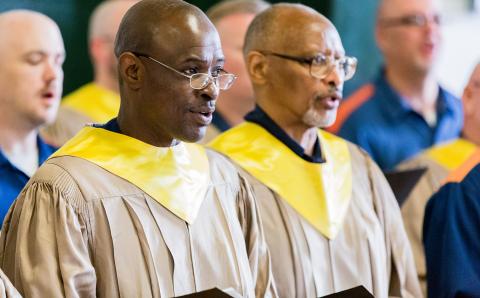In my earlier column marking the 400th anniversary of the Canons of Dort (“Commemorating the Canons,” Jan. 2019), I mentioned my dislike of the well-known acronym TULIP (total depravity, unconditional election, limited atonement, irresistible grace, preservation of the saints). Although we need to hold onto the core doctrinal truths of the Canons, I honestly wish we could uproot TULIP.
None of the terms of TULIP is actually used in the Canons. The acronym first appears in the 20th century, and we tend to forget that it only “works” in English. The “petals” don’t even reflect the order of the Canons (which would be ULTIP). While this might seem like a trivial point, it actually gets at something very important. TULIP misrepresents the Canons in a number of ways.
At least three of the terms are particularly problematic. Despite what the phrase “total depravity” might suggest, the Canons do not teach that people are utterly wicked all the time. The Canons simply acknowledge that no part of us is unaffected by sin, which means no one could make a move toward God without the personal gift and work of the Spirit.
Also problematic is the term “limited atonement,” which seems to suggest there is something deficient about Christ’s work on the cross. The Canons quote a medieval axiom to make clear that Christ’s death is sufficient for all, but it is efficient only for some. This is not a uniquely Reformed position. Everyone except universalists agrees that not all will be saved by Christ’s atoning work because not all will come to faith. The main issue in the second point of doctrine (so poorly summarized by the “L” of TULIP) is that Christ’s death doesn’t simply hold out the possibility of salvation, as the Arminians claimed. Rather, Christ’s death achieves salvation for all whom God has chosen.
“Irresistible grace” is another term I wish we would strike from our theological vocabulary. It is often misunderstood to imply that the elect never resist the Spirit, or that becoming a Christian means losing your free will. The Canons teach the opposite. They remind us that apart from Christ, our wills are captive to sin such that we would never choose to turn to God in faith. We need the Holy Spirit to set our wills free, and when that happens, we freely choose to turn to Christ. A better term for this might be “the effectual call of the Spirit.” That also helps us to see that the only issue here is how someone comes to faith, not that the elect can never resist the Spirit in other aspects of their lives.
Too many of TULIP’s terms are misleading and easily caricatured. They end up misrepresenting the Canons and giving a distorted impression of Reformed theology. But there is another important way that TULIP is profoundly unhelpful. For some folks, it has become the summary of what it means to be Reformed. That is something the Canons themselves were never intended to be—the writers of the Canons would point us to the Belgic Confession for that. They simply respond to five disputed points raised by the Arminians about election. Thus the Canons are not a full summary of a Reformed doctrine of election, let alone of what it means to be theologically Reformed more generally. Besides giving a poor account of the Canons, TULIP, when misused as the only badge of Reformed-ness, has contributed to wider misunderstandings of our tradition.
Are you ready to join me in pulling up TULIPs from your theological garden?
Discussion Questions
- What do you know about the acronym TULIP and what has been your experience with it?
- How have you, or others, understood the phrase “total depravity”?
- What are some misunderstandings of the Reformed faith conveyed by using TULIP as the only summary of Reformed theology?
- Are there different ways of phrasing or summarizing the truths that TULIP tried to convey?
About the Author
Suzanne McDonald is ordained in the Christian Reformed Church and is professor of Systematic and Historical Theology at Western Theological Seminary in Holland, Mich.








